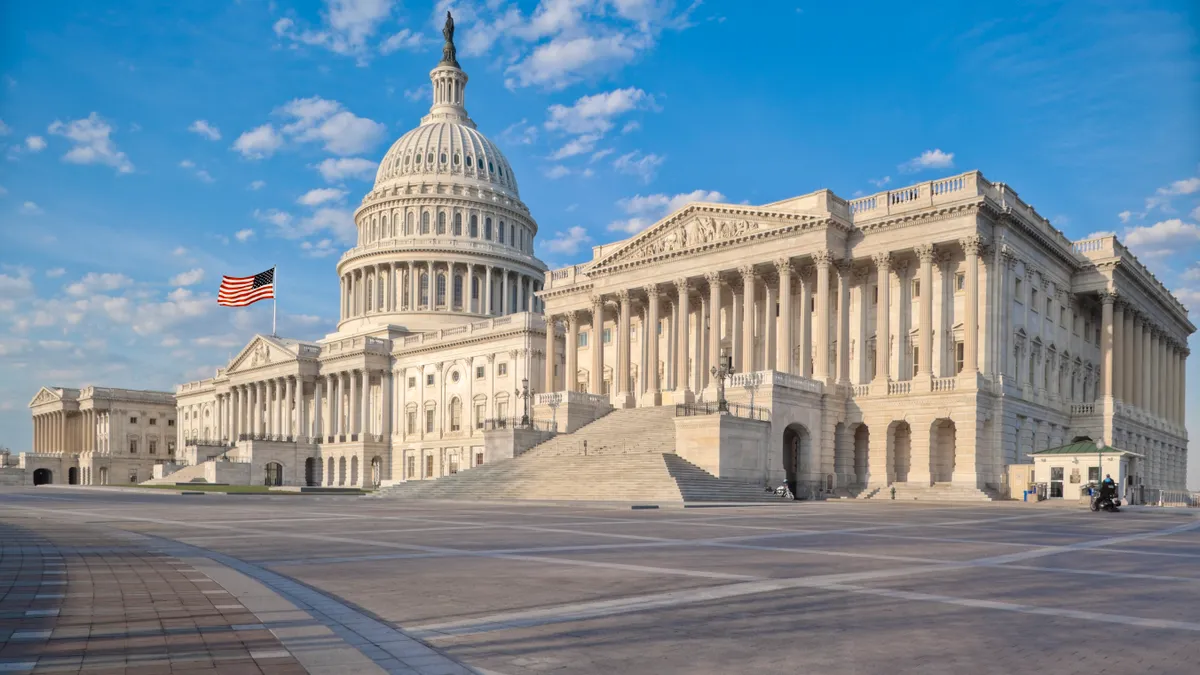Students can use Pell Grant funding for programs as short as 15 weeks, but some education advocates want to see more flexibility from the subsidy program. In the past year, efforts to extend federal Pell Grant eligibility to short-term programs reached further than they ever had before.
Though the effort in support of what’s called short-term Pell is largely bipartisan, there is disagreement about what sort of guardrails, if any, to place on the federal funds.
“Even where there’s broad agreement on what you want to do, figuring out how to do it right is really the key thing,” said Jonathan Fansmith, assistant vice president for government relations at the American Council on Education, the higher education sector's top lobbying group. “That’s been the trouble with getting short-term Pell over the finish line.”
Legislative experts say that the odds are long but not insurmountable. Here’s what they have to say about how it could move forward in the coming months.
A ‘remnants’ bill
In March 2021, a bipartisan group of senators and representatives introduced the JOBS Act, which stands for Jumpstart Our Businesses by Supporting Students. The bill was the beginning of the latest legislative push for short-term Pell.
Bills like the JOBS Act typically become law by being attached to larger legislative packages. In June 2021, an opportunity came in the form of a national innovation and science package that was moving through Congress.
Although there was broad support for the inclusion of the JOBS Act — and despite key senators reportedly agreeing to it — the policy got lost in the paring down of the package. Dissent over proposed quality assurance measures from House Committee on Education and Labor ranking member Virginia Foxx, a Republican, didn’t help the situation. Foxx said efforts to exclude for-profit institutions and online colleges from eligibility would unfairly discriminate and pick winners and losers in education.
“Unfortunately, it fell victim to a process independent of the merits of short-term Pell,” Fansmith said. “It wasn’t because people thought there wasn’t value in doing this, it’s because they minimized what was going to be in the final bill.”
It’s still possible for the remnants of the competitiveness package to be swept up into their own legislation, said Jennifer Stiddard, senior fellow at the National Skills Coalition, which has advocated for the Pell expansion. However, the prospects for that path are not great, she said.
“Anything that was considered in this larger package that didn’t make it, the political will around it seems like it might be lost,” she said.
An appropriations or defense bill
The other, potentially more likely, way that short-term Pell could become law in 2022 is by being attached to an appropriations bill. The return of legislative earmarks might incentivize lawmakers to pass an appropriations bill by the end of the year, Stiddard said. Earmarks allow legislators to steer funds towards their districts or pet projects but were out of practice for a decade. But Foxx may still need to agree on the final language for it to pass.
The National Defense Authorization Act presents another opportunity. It is typically passed annually but has not yet been this year.
But getting short-term Pell onto either of those legislative vehicles is a long shot, Fansmith said.
“It has to be somebody’s top priority because everyone will jockey to get things onto those bills because they will pass,” Fansmith said. “What we’ve seen is it’s a priority to people, but maybe not a top priority to the people who could push it over the finish line.”
If lawmakers punt an appropriations bill into 2023, the result will depend strongly on which party holds a congressional majority after November's midterm elections.
“If you have Republican majorities in both chambers, it’s not hard to envision real negotiations with the administration,” Fansmith said. “There might be enough interest to bring both sides to the table and get something done.”
Looking forward to 2023
In 2023, several original sponsors of the JOBS Act will be gone. Though Sen. Tim Kaine, a Democrat, will be returning, two key Republicans, Sen. Robert Portman and Rep. Anthony Gonzalez, are retiring, and Rep. Andy Levin lost his Democratic primary.
“How do we go forward with JOBS now that we’ve lost so many key members on it?” Stiddard said.
Foxx appears likely to remain on the House’s education and labor committee, Stiddard said. She is poised to become chair if Republicans retake the chamber.
In the Senate, with the current education and labor committee chair and ranking member both likely departing, a committee led by Bernie Sanders and Rand Paul becomes possible, she said. That leadership scenario would likely make bipartisan agreement more difficult.
Foxx has also introduced a bill containing her own version of short-term Pell, complicating the issue.
Her proposal includes new language that allows for-profit and online institutions to receive funding for programs as short as eight weeks. Some have advocated against their inclusion, arguing student outcomes in online programs vary widely and that the for-profit industry has a history of predatory practices. It could halt any momentum the policy previously had, Stiddard said.
“You see a lot of guardrails or accountability measures that had no opposition from anyone removed for this new bill that Virginia Foxx introduced,” she said. “It moves the goal posts in a way that makes coming to an agreement more difficult than maybe it was a few months ago.”
Ultimately, the path for short-term Pell is unclear at this moment. Its future will depend on advocacy by lawmakers and the results of midterm elections.
“Hopefully we’ll get some clearer heads and this will move forward,” Fansmith said. “There’s a good chance for it, but I’m not holding my breath.”





















